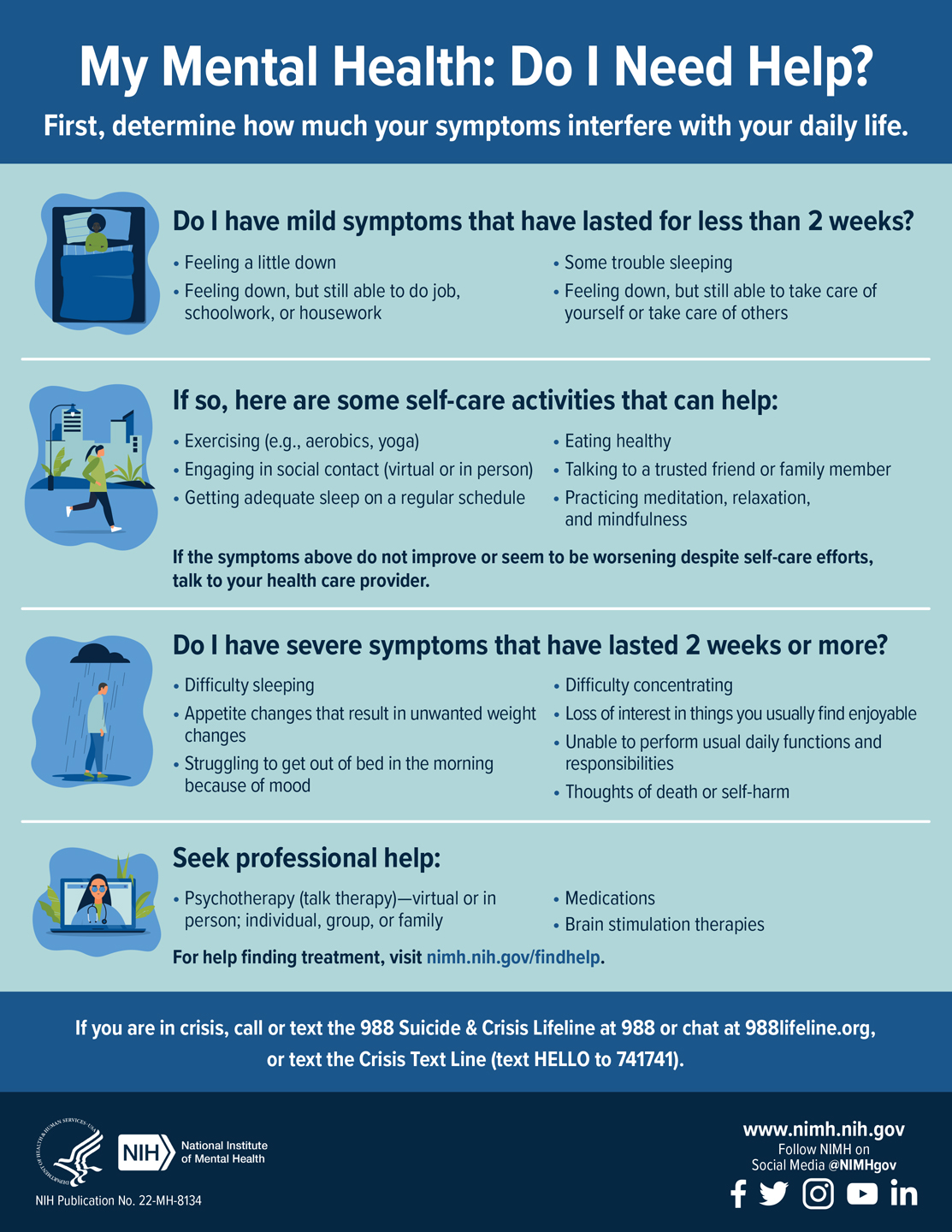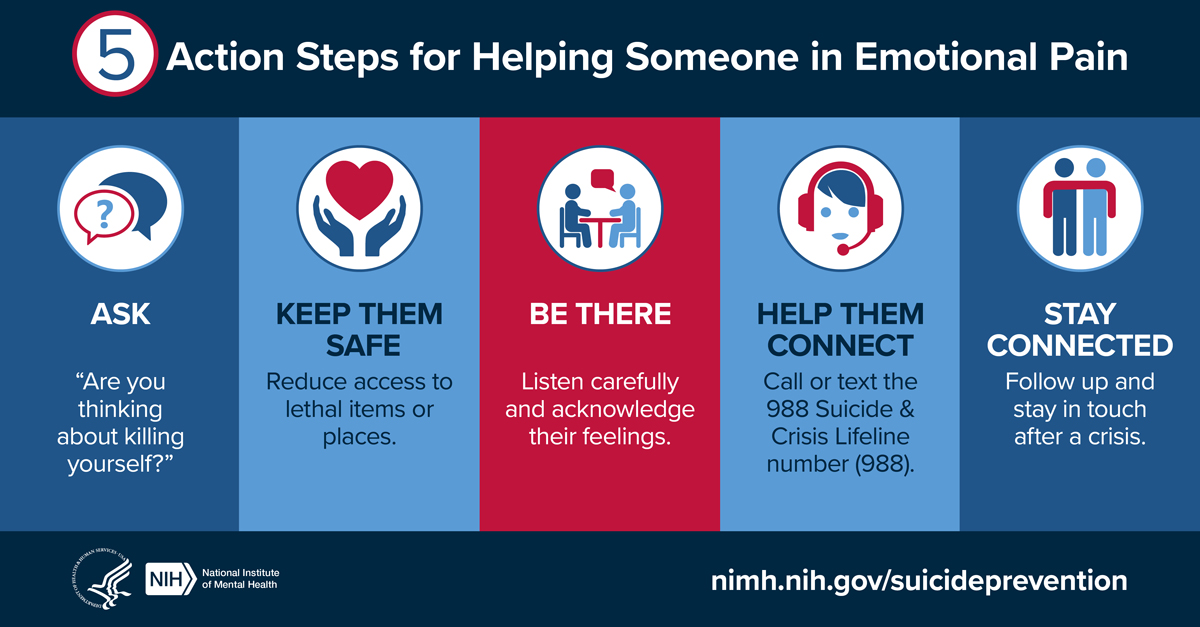The Link between Mental Health and Dental Health
May is Mental Health Awareness Month and National Dental Care Month
In May of 2018, National Dental Care Month was created to encourage healthy dental hygiene and improve awareness concerning preventative dental care. A healthy smile requires continued healthy habits!
On April 30, 2024 President Biden proclaimed May 2024 as National Mental Health Awareness Month and encouraged everyone to join in activities and take action to strengthen the mental health of our communities and our Nation.
Why is Awareness Important?
Did you know that dental health is connected with oral health, and a person’s oral health, in turn, is connected with their mental health? Studies have shown that dental health problems can not only impact a person’s quality of life but also exacerbate mental health problems. Increased awareness and honest conversations will help reduce the stigma surrounding these health issues and highlight how they can impact all of us!
- 1 in 5 U.S. adults experience mental illness each year.
- Only 47.2% of U.S. adults with mental illness received treatment in 2021.
- 1 in 6 U.S. youth have a mental health condition, but only half receive treatment.
- 50% of all lifetime mental illness begins by age 14, and 75% by age 24.
statistics by the National Council for Mental Wellbeing
- Oral diseases affect nearly 3.5 billion people worldwide.
- approximately 2.3 billion people globally suffer from tooth decay in their permanent teeth.
- Gum disease is one of the most common diseases, affecting up to 50% of the global population.
statistics by the FDI World Dental Federation

The health of your teeth often reveals clues about your overall health … your stress levels, your anxiety, your mood and the presence of any eating problems.
Signs of Mental Health Decline
Do you or someone you know experience these symptoms?
- Dramatic sleep and appetite changes or decline in personal care.
- Dramatic shifts in emotions or depressed feelings.
- Social withdrawal and loss of interest in activities previously enjoyed.
- A drop in functioning at school, work or social activities (quitting sports, failing schoolwork or difficulty performing familiar tasks).
- Problems with concentration, memory and speech that are hard to explain.
- Heightened sensitivity to sights, sounds, smells or touch.
- Loss of initiative or desire to participate in any activity.
- Feeling disconnected from oneself or surroundings.
- Illogical or “magical” thinking (typical of childhood behavior) in an adult.
- Fear of others or a strong nervous feeling.
- Odd, uncharacteristic or peculiar behavior.
- Changes in school or work performance and difficulties in relationships with peers or co-workers.


Managing Mental Health and Dental Health
Mental health includes emotional, psychological, and social well-being – all essential elements to your overall health and quality of life. Because mental health and dental health are interconnected, things you do to manage one, also benefit the other. Self-care can play an important role! Making small changes to your day-to-day life that can have a lasting impact. Here are some self-care tips:
- Get regular exercise. Just 30 minutes of walking every day can boost your mood and improve your health!
- Eat healthy, regular meals and stay hydrated. A balanced diet and plenty of water can improve your energy and focus throughout the day. Decrease caffeine and alcohol consumption can be helpful too.
- Make sleep a priority. Stick to a schedule to get enough sleep. Reduce blue light exposure from your phone or computer before bedtime.
- Find time to relax. Explore relaxation techniques that incorporate meditation, muscle relaxation, or breathing exercises. Try other healthy activities like listening to music, reading, spending time in nature, and engaging in low-stress hobbies.
- Set goals and priorities. Differentiate what must get done now and what can wait. Learn to say “no” to new tasks and take a moment to appreciate what you have accomplished at the end of each day.
- Practice gratitude. Make a daily list of things you are grateful for.
- Focus on positivity. Identify any negative and unhelpful thoughts.
- Stay connected. Reach out to friends or family members who can provide support.

Self-care looks different for everyone, so it’s important to discover what works best for you!
Be the One to Help
According to the National Institute of Mental Health, suicide is a leading cause of death in the United States… but it can be prevented! Knowing the warning signs for suicide and 5 steps to help save lives:
- ASK “Are you thinking about killing yourself?” Studies show that asking this difficult question to an at-risk individual does not increase suicide rates or suicidal thoughts.
- KEEP THEM SAFE An important part of suicide prevention is reducing access to highly lethal items. Asking if the at-risk person has a plan and removing or disabling the lethal means can make a difference.
- BE THERE Listen carefully and learn what the individual is thinking and feeling. Research suggests acknowledging and talking about suicide may in fact reduce rather than increase suicidal thoughts.
- HELP THEM CONNECT Save the 988 Suicide & Crisis Lifeline number (call or text 988) and the Crisis Text Line number (741741) in your phone so they’re there if you need them. You can also help make a connection with a trusted individual like a family member, friend, spiritual advisor, or mental health professional.
- STAY CONNECTED Staying in touch after a crisis or after being discharged from care can make a difference. Studies have shown the number of suicide deaths goes down when someone follows up with the at-risk person.

